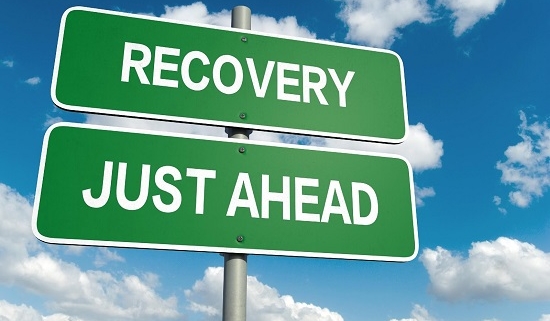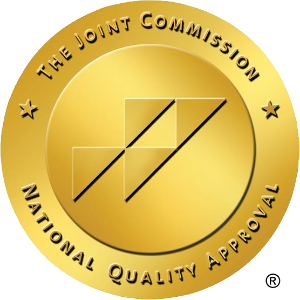When it is time to proceed with addiction recovery it is important to understand that the detox and withdrawal phase is only the first step. Many people misunderstand what addiction recovery involves, mistakenly thinking that once the substance has cleared the system they are good to go. On the contrary, the only way to successfully free oneself from the grip of a substance use disorder is through an evidence-based treatment program.
Expert addiction treatment provides the tools to make fundamental changes in the way a person thinks, reacts, behaves, and responds when encountering a trigger. To learn the new healthy thought patterns and behavioral responses, the individual engage in such evidence-based treatments as cognitive behavioral therapy (CBT), dialectical behavior therapy (DBT), contingency management, or motivation enhancement therapy. These therapies help the individual learn new ways to manage stress, how they think about themselves, and how to spend their free time. These are the building blocks for a sustained recovery.
What To Expect at a Utah Treatment Facility for Addiction Recovery
Upon entering a Utah treatment facility or rehab the individual will participate in the intake process. This encounter involves an interview with the clinical staff, which will provide the details needed to determine the level of care required for a successful recovery. The intake interview provides the following information:
- The history of the substance use disorder
- Which substances or substances are involved
- What is the usual daily consumption of the substance
- Is there a co-occurring mental health issue, such as anxiety, bipolar disorder, or depression
- A general overview of medical history
Following the intake assessment, the individual will be directed toward either outpatient treatment or residential treatment, and a customized treatment plan using evidence-based therapies is then devised. Evidence-based refers to those modalities that have been clinically studied and quantified, demonstrating effective treatment responses.
Outpatient treatment. An outpatient setting offers varying levels of support. The severity or length of history of the substance use disorder will dictate which intensity of outpatient care is needed. Outpatient rehab is appropriate for individuals with fairly recent or milder substance use problems with a supportive home environment.
An outpatient addiction treatment Utah program allows the individual to remain living at home, which substantially reduces the cost of treatment versus a residential setting. Because of this flexibility, individuals in an outpatient program are often able to continue to work or attend school while engaged in the program. Most outpatient programs last 3-6 months in duration.
- Basic outpatient counseling services. Basic outpatient therapy is usually reserved for a step-down level of care following completion of a residential program or IOP. This involves one or two therapy sessions per week providing ongoing recovery support.
- Intensive outpatient program (IOP). The IOP involves 9 hours of participation per week and includes group therapy, life skills classes, 12-step meetings, relapse prevention planning.
- Partial hospitalization program (PHP). The PHP is also referred to as a day program, as clients attend several hours (up to 8 hours) daily engaged in therapeutic activities. These include individual and group therapy, family therapy, and aftercare planning.
Residential treatment. The residential, or inpatient, setting provides support 24 hours a day. In the highly structured therapeutic setting, individuals participate in daily classes, groups, individual therapy, and other complementary activities. A residential rehab program lasts 30 days to several months in duration.
Residential rehab at a Utah treatment facility is the desired level of support for individuals with a more serious drug or alcohol addiction or dependency. This form of rehab offers customized treatment plans that align with the specific needs of the individual, including dual diagnosis treatment. Dual diagnosis refers to the presence of both a substance use disorder and a coexisting mental health condition.
Residential treatment includes the following treatment elements:
- Medical detox. The residential program will provide a medically supported detox, which provides the necessary oversight and medical interventions to help minimize the discomfort associated with this first phase of treatment. The detox team closely monitors vital signs and withdrawal symptoms, providing medications and psychological support for the duration of the detox process.
- Psychotherapy sessions. Addiction treatment is based on evidence-based psychotherapy modalities that help individuals make essential changes in their thoughts and behaviors. By modifying the way triggers are responded to the individual is able to shift out of the substance use behaviors that have kept them entrenched in the addiction. Disordered thoughts are replaced with rational thoughts, and substance use is replaced with constructive actions.
- Peer group sessions. A mental health professional will guide a group session by introducing a specific topic, such as stress management or relapse prevention for example. The group setting allows peers in recovery to provide mutual support to each other while sharing their personal journeys.
- Family-focused therapy. Providing guidance for the family system is an essential aspect of the recovery process. Addiction is a family disease, and therefore impacts the family dynamic in profound ways. Through family therapy, family members are coached to set healthy boundaries and rational expectations, while also providing support to their loved one in recovery.
- Psychosocial education. Rebuilding a new life in recovery requires certain skills. Psychosocial skills include such things as job seeking skills, social skills, conflict resolution techniques, communication skills, and life skills training.
- Medication. Medication is provided for an underlying mental health disorder, such as anxiety or depression. If the individual is already taking a psychotropic drug, the doctor will review the dosage and possibly make changes in the prescription. Medication-assisted treatment for assisting with relapse prevention is available for individuals recovering from opioid or alcohol dependency.
- Recovery meetings. 12-step or other non 12-step recovery meetings supplement the group and individual therapy, providing useful coping skills and benchmarks to access throughout the recovery process while also offering an additional source of peer support.
- Holistic therapy. A variety of holistic therapies are included in residential rehab programs today. Holistic therapies offer a complementary aspect to the clinical modalities, enhancing the overall therapeutic result. Specifically, holistic activities assist individuals in addiction recovery Utah through useful stress reduction techniques. Examples of holistic activities include yoga, mindfulness practice, acupuncture, aromatherapy, meditation, and art therapy.
- Recreational therapy. Restoring health through fitness classes and nutritional counseling rounds out the residential program. Regular physical activity has numerous psychological benefits in addition to the health benefits provided. These include stress reduction, better sleep quality, and improved mood. Nutrition also plays an important role in overall wellness, so rehabs counsel individuals to make adjustments in their daily diets.
Preparing for Rehab
Once the commitment to get help for a substance use disorder is made, it is helpful to take some steps to prepare for beginning a rehab program:
- Gather support. The news that you are planning on addressing your substance use disorder will bring much peace to loved ones who have likely been seriously concerned. Encourage close family members and friends to be available to provide emotional support in the upcoming months. The first year in recovery is the most difficult, so having a strong support system in place can help the individual navigate any challenges.
- Check your insurance benefits. Healthcare plans differ widely, with varying limits of addiction treatment benefits available. Some PPO plans may cover all treatment and medications in full, where others will cover just a portion of these costs. Learn what the out of pocket expenses will be in advance so it is possible to make plans for the financial aspects of addiction treatment.
- Research rehabs. There are abundant options for rehabs, in both outpatient and residential settings, with a wide variety of services and amenities. Take time to research the various programs to find the best fit. Rehabs feature such nuances as pet friendly rehab, couples rehab, luxury rehab, faith-based rehab, gender specific rehab, and more. Call the top choices and inquire about space availability in their program, and gather more details about the rehab and costs before making a final decision.
- Confide in your employer. One of the most difficult pre-planning steps is meeting with the boss to inform him or her of the need for an extended leave. Privacy is protected so it is up to each person’s discretion to decide whether or not to reveal the reason for the medical leave. If entering an outpatient program the time away from work will depend on the level of intensity. Some outpatient programs offer evening programming, which allows the individual to continue to work. Employers are usually able to accommodate a request for a modified work schedule or leave so the employee can obtain the important treatment services.
- Prepare mentally for detox. Most individuals with a substance use disorder understand detox and withdrawal is the first step of the recovery process. When a medical detox is needed it is helpful to be mentally prepared for this by taking a long-term view. Although unpleasant, withdrawal symptoms can be successfully managed and minimized using various medications, and most people will complete detox in 5-7 days.
- Prioritize life around recovery. Before beginning the addiction recovery program it is critical to be fully committed to the process. This includes willingly embracing a new sober lifestyle and making recovery the number one priority. Consider the ways that recovery meetings and sober lifestyle choices can pave the way for a successful long-term result.
Overcoming Barriers to Treatment
Despite obvious signs of distress, a loved one with a substance use disorder may still resist getting the help they need. It is a difficult step to take, as getting sober and adopting a sober lifestyle requires a serious commitment. Even those who agree that they need professional help with their substance use problem may find themselves facing multiple obstacles to treatment. Some of these obstacles, and solutions for overcoming them include:
- Getting time off work for treatment. Many individuals who need treatment cite work obligations as a reason for not being able to go to rehab. However, most employers have policies in place to discreetly provide medical leave of absence for substance use treatment. Coworkers are probably already concerned about the signs of addiction and will be supportive of the individual taking time off to go into a treatment program. In situations where it is simply not feasible to take a long leave, an outpatient program provides much more flexibility.
- Fear of repercussions, such as damaged reputation or impact on career. Because of the enduring stigma surrounding substance use disorders, it is understandable why someone might be concerned about their reputation being harmed. Employers are prohibited from discriminating against an employee in need of treatment through federal law. In addition, the HIPAA Privacy Act protects the individual’s medical records from being disclosed.
- Affordability of treatment. It is no secret that rehabs can be costly. However, many are not aware that their health insurance policy offers at least partial coverage for all services related to addiction treatment. Check with your insurance provider to learn about coverage amounts and out of pocket expenses. Many rehabs offer in-house financing options to help individuals with limited resources. Also, some rehabs may provide partial scholarships toward the cost of treatment.
- Denial. Denial that the individual needs addiction treatment is the most common obstacle to getting help. It is difficult to admit that a substance use issue has gotten out of control. Many have come to rely on the substance to help manage emotional distress or work stress, and are reluctant to let go of that crutch. Consider the services of a professional interventionist who can help the family guide the individual into treatment.
While formidable obstacles do exist, it is possible to find solutions that may help persuade the loved one to take that first step and enroll in a recovery program.
Next Level Recovery Utah Treatment Facility for Substance Use Disorders
Next Level Recovery is a leading rehab program that serves individuals near Salt Lake City, Utah. Next Level Recovery offers outpatient, residential, and dual diagnosis recovery services using individualized treatment planning and an integrative, evidence-based approach. For more information about the different programming options, please contact the team today at (888) 759-5846.





